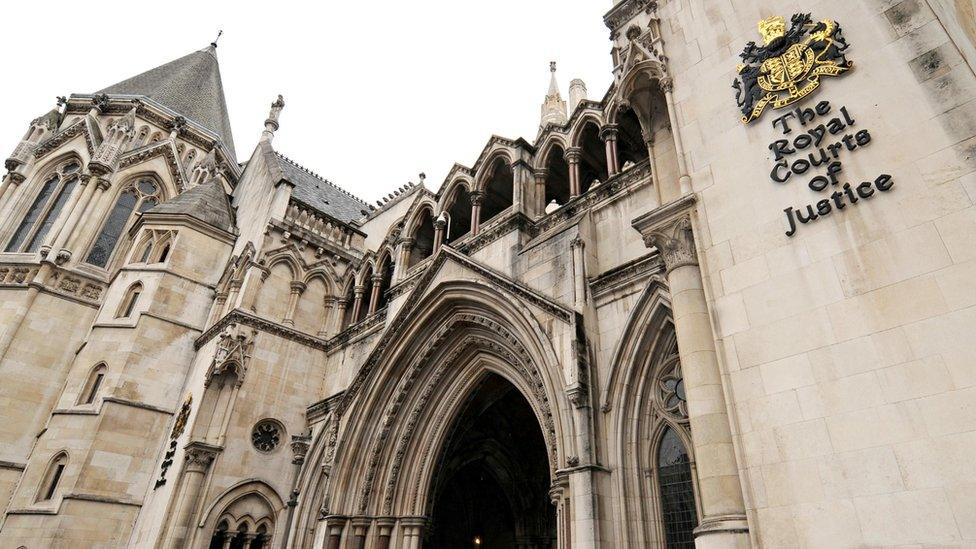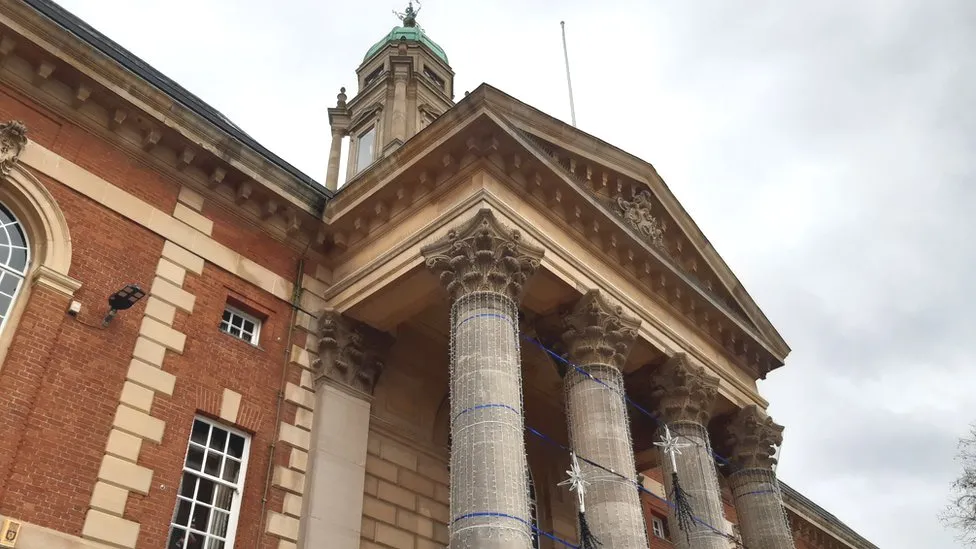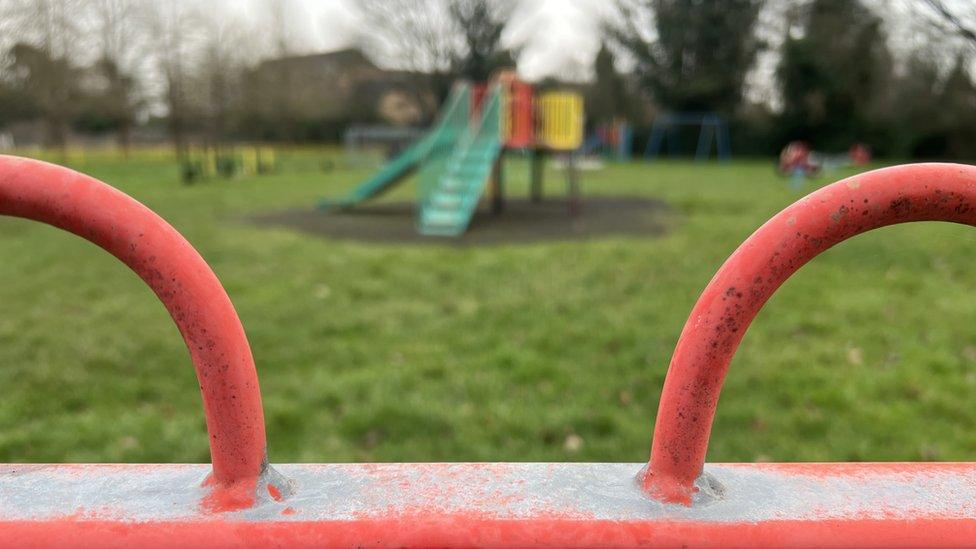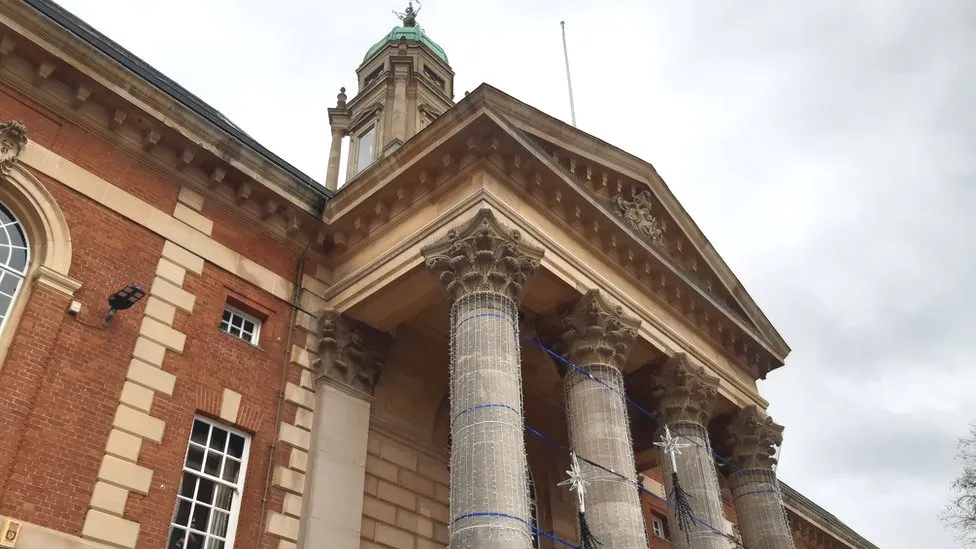Peterborough council loses 'liberty' argument over disabled girl
- Published

The Royal Courts of Justice complex where Mrs Justice Lieven considered the disabled girl's case
A severely disabled 12-year-old girl is not being deprived of her human right to liberty, a High Court judge ruled.
Lawyers for Peterborough City Council argued the girl - who is bed-bound and cannot communicate - should be treated like any other child.
They asked Mrs Justice Lieven to make an order, lawfully authorising "restrictions" on the girl's life.
The judge ruled it was unnecessary, as the child was "incapable" of asserting her right to liberty.
Mrs Justice Lieven said the case raised an important issue about the "requirement" for such an order in the case of a "very severely-disabled child".
'Profound disabilities'
The judge considered evidence at a recent private hearing in the Family Division of the High Court, at the Royal Courts of Justice complex in London, and has outlined her conclusions in a ruling published online, external.
The youngster, in foster care and referred to as "SM" in the ruling, had "profound" disabilities, including lissencephaly, a malformation of the brain, Mrs Justice Lieven heard.
She could not "communicate in any form", could not "leave her bed of her own violation", and was fed via a device inserted into her stomach.
A decade ago, Supreme Court justices ruled that disabled people had the same right to "physical liberty" as others, which the state had a duty to uphold.
They found that three disabled people - two teenagers and an adult living in supported accommodation - had been unlawfully deprived of their freedom under mental health legislation.

The Right to Liberty - what is it?
Article 5 of the European Convention on Human Rights says: "Everyone has the right to liberty" and no one shall be "deprived" of liberty save in "accordance with a procedure prescribed by law"
The mental health charity Mind explained in an online guide, external why people, who are not convicted of a crime, could lawfully be deprived of their liberty
It said deprivation of liberty could happen if "you need to go into a care home or hospital" but don't have the mental "capacity to make decisions" about care or treatment
A care home or hospital must get permission from the relevant authority - a council or health authority
The guide indicates that decisions relate to whether "it's in your best interests" to take away liberty or "necessary and unavoidable to take away your liberty"
Councils and hospitals use procedures called the Deprivation of Liberty Safeguards (DoLS)
Judges in family courts or in the Court of Protection - where issues relating to adults who lack the mental capacity to take decisions for themselves are considered - can make orders if disputes arise

Mrs Justice Lieven said there had been an "exponential" growth in similar cases involving the liberty of disabled people since the Supreme Court ruling.
But she said the girl's case was different, because the three disabled people involved in the Supreme Court litigation were all "physically capable" of leaving their homes.
Lawyers representing Peterborough City Council social services, who have welfare responsibilities for the girl, wanted a "deprivation of liberty" order.
They asked the judge to authorise restrictions including one-to-one supervision and the locking of "external doors" for "integrity" and "security" reasons.
A guardian appointed by the judge to represent the girl's interests argued that such an order was not necessary.
'Discrimination'
Barrister Christi Scarborough, who represented the council, argued that the girl was "deprived of her liberty" and therefore a "deprivation of liberty order" was needed.
She argued that the girl was "not free" to leave her home of her own will.
Ms Scarborough said an "ordinary 12 year old" might be expected to "have some liberty to come and go".
She argued that "not finding" the girl was "deprived of her liberty" would involve discrimination against a disabled person.

Peterborough council said the girl was being denied the right to liberty even through she was severely disabled
Mrs Justice Lieven disagreed and concluded that the girl was not being deprived of her right to liberty under the terms of human rights legislation.
She said comparing the girl with a "non-disabled 12-year-old", as an "objective" analysis, was a "wholly unreal" exercise.
The judge said the girl was "both physically incapable" of exercising her right to liberty and "mentally incapable of asserting it".

Follow East of England news on Facebook, external, Instagram, external and X, external. Got a story? Email eastofenglandnews@bbc.co.uk or WhatsApp 0800 169 1830
Related topics
- Published1 March 2024

- Published30 January 2024

- Published18 January 2024
